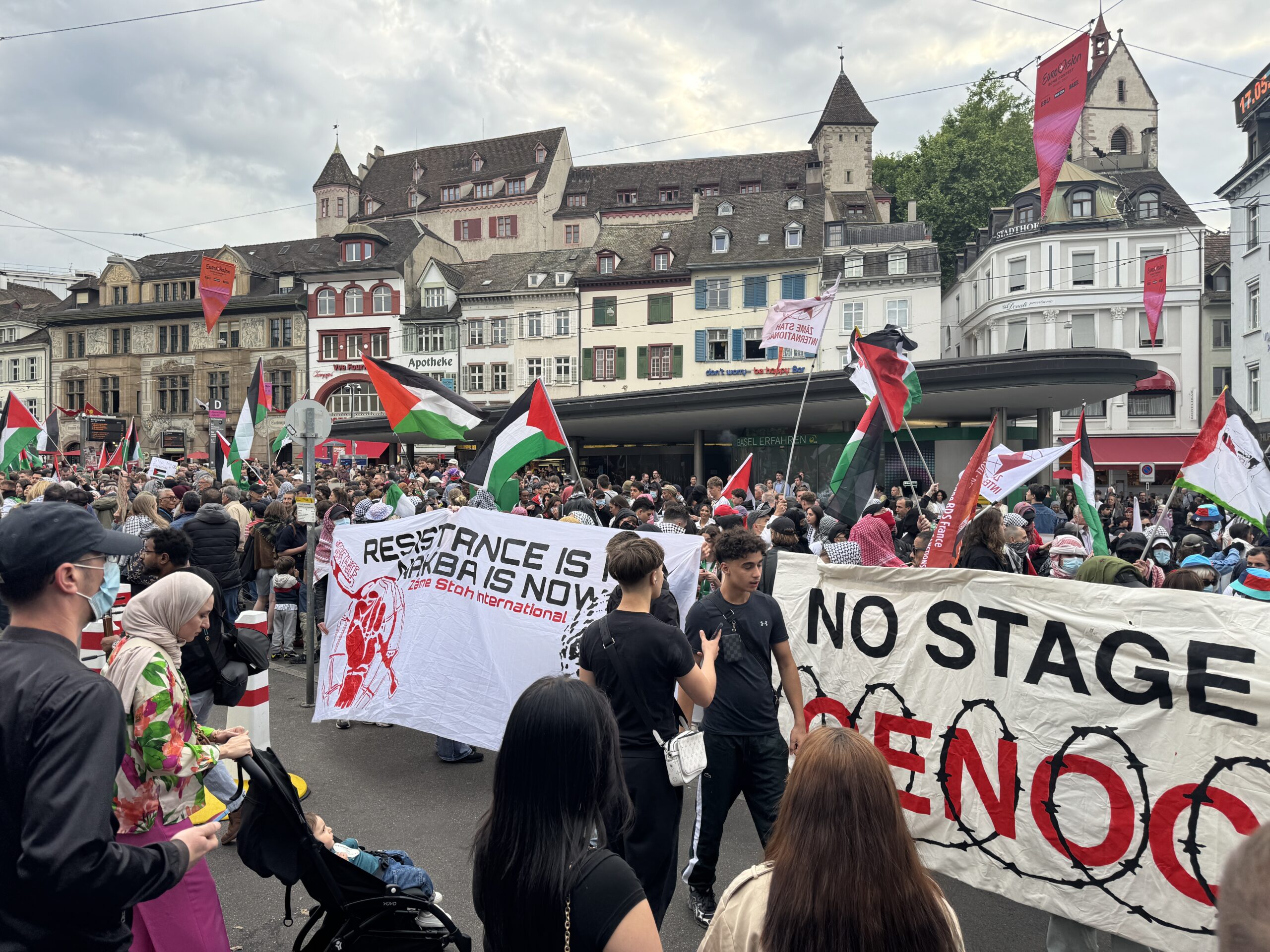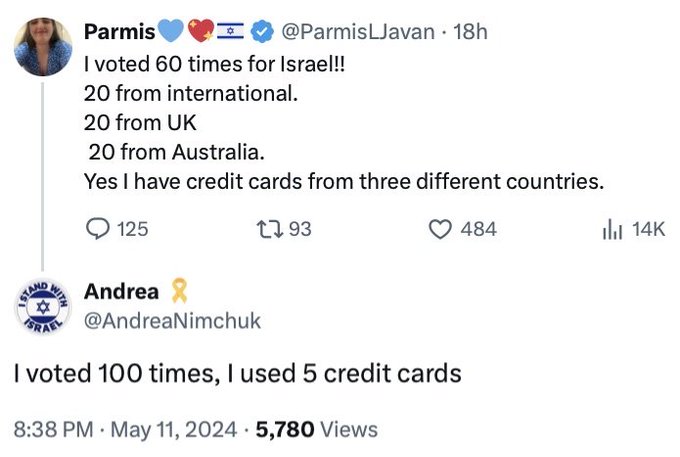
Elham Asaad Buaras
This year’s Eurovision Song Contest ignited one of the most politically charged controversies in the competition’s history. Austria’s JJ, real name Johannes Pietsch, claimed victory with his heartfelt ballad Wasted Love—but his win has been overshadowed by Israel’s participation and contentious second-place finish.
Israel’s entry, New Day Will Rise, performed by 24-year-old Yuval Raphael, placed 14th in the jury vote but surged to second overall after topping the public televote in 13 countries, including the UK, Spain, and the Netherlands. The result has triggered widespread outcry and demands for reform.
Speaking to El País, JJ did not mince words: “It is very disappointing to see that Israel is still participating in the contest. I would like next year’s Eurovision to be held in Vienna and without Israel. But the ball is in the EBU’s court. We, the artists, can only raise our voices on the matter.”

Photo: On X (formerly Twitter), Israeli supporters boasted about using multiple credit cards to bypass the 20-vote limit and stack the televote in Israel’s favour.
Israel’s inclusion this year sparked widespread protests due to its ongoing military campaign in Gaza, which has killed tens of thousands of Palestinians and blocked critical humanitarian aid. During the Grand Final in Basel, Switzerland, demonstrators clashed with police outside the venue. Inside, viewers noted that the volume was suspiciously lowered during Raphael’s performance—possibly to muffle audible dissent from the audience.
While JJ’s stance has drawn praise, the broader scandal surrounding Israel’s unexpected televote success has forced the European Broadcasting Union (EBU) onto the defensive.

Tens of thousands people take to the streets to protest against Israel’s Eurovision Song Contest participation in Malmo, Sweden on May 9, 2024. (Credit: Atila Altuntaş/Anadolu Agency)
Public broadcasters from Ireland, Spain, Belgium, Finland, Iceland, and the Netherlands have demanded greater transparency. Spain’s RTVE has even called for a full investigation, while Ireland’s RTÉ has asked for a detailed breakdown of vote tallies. Critics argue that Eurovision’s rule allowing up to 20 votes per person opens the door to manipulation.
Belgian MP Katia Segers was blunt: “A system in which everyone can cast up to 20 votes is a system that encourages manipulation.” Belgian broadcaster VRT noted that televoting from Belgium more than doubled from 1.3 million in 2023 to 2.2 million in 2025—despite Belgium not qualifying for the final. Similar discrepancies have emerged elsewhere.
Compounding the controversy are reports that Israeli embassies and government-affiliated social media accounts actively encouraged voting for Raphael. While not technically against contest rules, this direct state involvement has alarmed many observers who fear Eurovision is becoming a stage for soft-power campaigns rather than musical celebration.
Streaming statistics offer further cause for concern. On Spotify, Israel’s entry ranked just 19th in Eurovision-related streams the week of the contest. On YouTube, its performance trailed most other finalists. Yet it managed to win the public vote in over a dozen countries.
In response, Eurovision’s Executive Supervisor Martin Green insisted the vote was secure and independently verified. “Every national result is checked and verified to exclude any irregular voting patterns,” he said, adding that compliance monitors and third-party partners oversee the process.
But scepticism remains. Dutch broadcasters Avrotros and NPO warned Eurovision is becoming “increasingly influenced by societal and geopolitical tensions” and questioned whether it can still function as an “apolitical, unifying cultural event.”
Spanish Prime Minister Pedro Sánchez took the criticism further, comparing Israel’s inclusion to Russia’s expulsion after its invasion of Ukraine. “Russia had to leave international competitions and could not take part,” he said. “Therefore, Israel shouldn’t either, because what we cannot allow is double standards in culture.”
Behind the scenes, anxiety is growing about the long-term damage this year’s contest could inflict. Had Israel won, experts warn, the EBU may have faced a major boycott.
“Had Kan [Israel’s broadcaster] won on Saturday, Eurovision would have faced a significant loss of goodwill from community media and much of its fanbase,” said Ewan Spence, senior editor at ESC Insight. He added that staging Eurovision in Israel during the Gaza war would have posed “major security and reputational risks.”
Photo: People protest against Israel’s participation in the 2025 Eurovision Song Contest and demanded that the EBU, the organizer of the contest, not allow Israel to participate again at the Barfusserplatz Square in Basel, Switzerland on May 17, 2025. (Credit: Muhammet İkbal Arslan/AA)
Notice: This article does not appear in the PDF flip-through edition of this issue